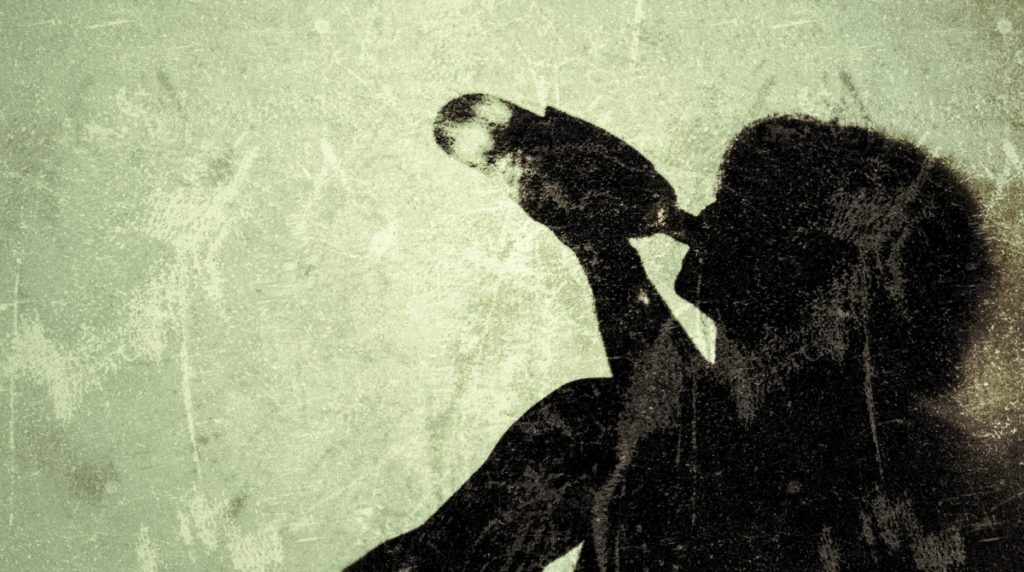
In this episode, we talk about salvation as the need to be integrated.
Salvation is from our corrupt society. That means Jesus sets us free from subjugation to the dynamics of interpersonal control. But corruption doesn’t reside in society except as it inhabits each member. Everyone’s personhood is degrading under the corrosive influence of sin. The need to be integrated has been observed by psychologists as well as theologians. To be saved is to be cured of personal deterioration.

Episode Notes for “The Need to be Integrated”
Salvation requires a reversal of the corruption spreading within each person.
In our vernacular, we almost exclusively use the word, “corruption,” to describe self-serving governments or government officials. When someone describes a politician as corrupt, we can imagine them taking bribes or kickbacks in exchange for special treatment. Political corruption is an abuse of power as well as a moral deficiency within the participants. We think of corruption as a type of white-collar crime, but that’s not the essential meaning of the word.
The English word, “corrupt,” came from a Latin word meaning “to rot or decay.”[i] That’s also the root meaning of the New Testament Greek word for “corrupt.” The ancients didn’t know about microbes; they only knew that something invisible broke down the dead bodies of humans and animals. Corruption started small and invisibly overtook formerly living tissue.
Even though we’ve lost this word picture when we speak of political corruption, the term retains its basic meaning. Political corruption happens in secret and undermines the integrity of governments. When corruption fully spreads through an entire government the society edges near collapse. Bribes are dishonest and immoral, but they’re also corrosive to the fiber of society.
When the Bible talks about corruption on an individual level it describes personal decay. It’s easy for unbelievers to dismiss “sin” as a religious construct, but the psychological fracturing that results from moral compromise can’t be denied. As far as I know, everyone values integrity, but real integrity requires complete consistency between the self we project and our private selves. Even the atheist, Sigmund Freud, observed the existence of competing drives toward selfishness and responsibility within every person.[ii] As long as the “Id” and the “Superego” pull the “Ego” in opposite directions every person undergoes some level of personal disintegration.
People who recognize the need to be integrated often seek out religion to bolster their virtuous side.
An alcoholic joining AA is a case in point. Step One in the AA Twelve Steps is, “We admitted we were powerless over alcohol – that our lives had become unmanageable.” As anyone who’s been in recovery will tell you, that first step is first for a reason. Most people live in some degree of disintegration, but they’ve learned to rationalize it away. I once had a woman come to the church where I work asking for money as her body convulsed under delirium tremens. She was clearly lying when she said she wanted the money to pay her water bill. Hoping for a moment of honesty, I asked her, “What do you see when you look in the mirror?”
She responded, “I see a basically good person.”
Brennan Manning in his seminal book, The Ragamuffin Gospel, tells the story of a man named Max who had checked into rehab. When one of the members of his group therapy circle asked him to give an example of a time when he had been unkind to one of his kids Max responded:
“Well, I was as little thoughtless with my nine-year-old daughter last Christmas Eve.”
“What happened?”
“I don’t remember. I just get this heavy feeling whenever I think about it.”
To get the details, the therapist called Max’s wife and put her on speakerphone. Over the phone, she told the group that Max had taken his daughter out to buy some shoes for Christmas. On the way back home, he stopped by a bar and told his daughter to wait for him because he would be right out. She went on:
“My husband met some old Army buddies in the tavern. Swept up in the euphoria over the reunion, he lost track of time, purpose, and everything else. He came out of the Cork ‘n’ Bottle at midnight. He was drunk. The motor had stopped running and the car windows were frozen shut. Debbie was badly frostbitten on both ears and on her fingers. When we got her to the hospital, the doctors had to operate. They amputated the thumb and forefinger on her right hand. She will be deaf for the rest of her life.”
Max appeared to be having a coronary. He struggled to his feet making jerky, uncoordinated movements. His glasses flew to the right and his pipe to the left. He collapsed on all fours and sobbed hysterically.[iii]
We humans have a mighty ability to deny the distance between our self-image and the person we really are. Sadly, that distance continues to widen the longer we ignore it. Maybe that’s why so few committed romantic relationships endure. We love the people who believe the lies we tell ourselves. Once they spend a couple of years really getting to know us, though, they begin to reflect the image of our true selves. Rather than face the lie, we reject our partner and move on to someone else who doesn’t know us quite as well.
We love the people who believe the lies we tell ourselves.

We want to believe we’re at least close to as good as we should be, and we want others to believe it too. This personal dishonesty creates a code of silence that strongly discourages interpersonal honesty.
Even if we must confront someone with their shortcomings, we usually understate the problem. Take the wording of the AA Step One as an example: “We admitted that we were powerless over alcohol…” That’s never been true for anyone. Alcohol is an inanimate substance that has never had the least power over anyone. A truer statement would be, “We admitted that we were powerless to control ourselves…” As hard as it must be for an alcoholic to repeat the wording of Step One, it also excuses their actions. It makes the alcoholic a passive victim of something outside of themselves.
Could it be that some people benefit from the help of a higher power because one exists? Maybe only God can fix human brokenness.
And yet, even an approximate admission of inner corruption has value.
In the case of AA, that Step One admission leads to Step Two: “(We) Came to believe that a Power greater than ourselves could restore us to sanity.” To the chagrin, I’m sure, of the skeptical community, a 2020 Stanford School of Medicine study concluded that AA is the “most effective path to alcohol abstinence.”[iv] Could it be that some people benefit from the help of a higher power because one exists? Maybe only God can fix human brokenness.
Someone might object that AA isn’t Christian. But, isn’t God free to help someone who calls on him without fully understanding his nature? Really, those are the only people who ever call on him. No, AA isn’t Christian, but that’s why it doesn’t work better than it does. AA approximates Christian conversion by calling on addicts to become poor in spirit and to call on God. AA fails in that it remains a system of rules which can never bring a person from “recovering” to “recovered.”
AA only has one rule, “don’t drink,” but that’s one rule too many. That one rule forever ties the AA member to her addiction. Alcoholics Anonymous celebrates what a person hasn’t done and for how long they haven’t done it. But what about all the good we aspire to do? Surely a person needs to move beyond the goal of sobriety to reach their God-given purpose and potential.
Addiction is just one manifestation of the corruption within the human person. Everyone has their issues. Maybe it’s a hated habit. Or it could be serial neglect. Whatever the specifics we suffer from shame, regret, and self-loathing that indicate the disintegration of our being. Just like with AA, Christian conversion has been known to offer serious relief to many people from the oppression of their own compulsions. Also like with AA, those converts often continue to hang in the balance between bondage and freedom because of rules.
Religious people often suffer more from the need to be integrated.
Suppose a man has been unfaithful to his wife. To secure her forgiveness he might promise to go to church. A sermon one Sunday resonates with him, and he comes to faith in Christ. He becomes zealous for God and wants to read the Bible. There he discovers a whole host of sins he’s been committing. Not only should he not cheat on his wife, but he also can’t even look lustfully at a woman.[v] While he may have become a better husband on the outside, the distance between his values and his behavior has become even wider. He might be more respectable but he’s less integrated than ever before. He’s more conscientious but just as spiritually dead.

For Paul, personal corruption arose from a spiritual principle that he called, “the law of death.” The Bible describes death as the separation of the spirit from the body.[vi] Paul, like Freud, saw humans as triune, but the apostle spoke of flesh, mind/self, and spirit instead of Id, Ego, and Superego. While Freud would have spoken of the Ego pulled between the urgings of the Id and Superego, Paul spoke of the mind/self at the center of a battle royale between the flesh and the spirit. Rather than think of this division of the self as integral to the human animal, though, Paul recognized the polarization of flesh and spirit as a kind of living death. He recognized it in himself:
I was once alive apart from the law, but when the commandment came, sin came alive and I died. The very commandment that promised life proved to be death to me.
(Romans 7:9-10 ESV)
This state of spiritual death clutches its victims as tightly as does physical death:
So I find it to be a law that when I want to do right, evil lies close at hand. For I delight in the law of God, in my inner being, but I see in my members another law waging war against the law of my mind and making me captive to the law of sin that dwells in my members. Wretched man that I am! Who will deliver me from this body of death?
(Romans 7:9-10; 21-24 ESV)
As far as we know, Paul hadn’t been an especially bad man.[vii] In the immediate context of this passage he evaluates himself as “wretched” based on the victimless sin of lust. His wretchedness didn’t arise so much from the damage his sin caused but from his helplessness against it. He was a respected religious man who was disintegrating according to spiritual law just as a corpse decays according to natural law.
…it stands to reason, this unnamed law is the law of death. It decrees, “When I want to do right, evil lies close at hand.”
Notice there are three spiritual laws mentioned in the passage above. They are the law of God, the law of sin, and an unnamed law interacting with the other two. This law opposed Paul’s moral imperative and enslaved him to the law of sin. Since he calls his tendency to obey sin while aspiring inwardly to obey God, “death,” it stands to reason, this unnamed law is the law of death. It decrees, “When I want to do right, evil lies close at hand.”
We live under the law of death because God’s warning to Adam was, “on the day you eat from it (the Tree of the Knowledge of Good and Evil) you will die.” According to Genesis 5, Adam didn’t die physically until 930 or so years later. Did God back off his promised punishment or did Adam die in some other way on that fateful day? It looks to me like his actions and his moral center went separate ways. He did surely die according to Paul’s concept of spiritual death.
Paul saw himself as one of the walking dead.
He could think and plan and move, but his flesh would always resist his inner yearning to do right. Since his physical self, his flesh, resisted God’s spiritual law, that was the part of him that was spiritually dead. Paul walked around in a dead and decaying body. So, he cries out to be saved from “this body of death,” also known as the “dead body.”
There’s a fungus in the rainforests of Brazil referred to as “the zombie-ant fungus.” Here’s how it got that name:
When the fungus infects a carpenter ant, it grows through the insect’s body, draining it of nutrients and hijacking its mind. Over the course of a week, it compels the ant to leave the safety of its nest and ascend a nearby plant stem. It stops the ant at a height of 25 centimeters—a zone with precisely the right temperature and humidity for the fungus to grow. It forces the ant to permanently lock its mandibles around a leaf. Eventually, it sends a long stalk through the ant’s head, growing into a bulbous capsule full of spores. And because the ant typically climbs a leaf that overhangs its colony’s foraging trails, the fungal spores rain down onto its sisters below, zombifying them in turn.[viii]

This phenomenon almost stretches credulity. It’s both fascinating and horrifying in equal measure but would surely tip the balance toward the latter if it took place in anything larger than an ant. And yet, it accurately illustrates the spiritual death endemic to every human since the first of us became self-aware. Paul was compelled by sin to act against his will in ways that were harmful to the human collective.
The zombie-ant fungus further illustrates our need to be saved. If that ant could talk as she was ascending the plant stem, what would she say? I think she would share Paul’s plea – “Someone, save me from this dead body!” Neither the ant nor Paul suffered from a lack of willpower. The problem in both cases was a loss of executive function. An alien presence animates the hapless carpenter ant while leaving its brain untouched. The law of sin animated Paul even as his mind longed for the law of God. Paul was no more able to overcome sin than the infected ant could refuse to climb.
If Paul needed saving, what about the rest of us?
See if you relate to Paul’s experience of waking death:
For I do not understand my own actions. For I do not do what I want, but I do the very thing I hate. Now if I do what I do not want, I agree with the law, that it is good. So now it is no longer I who do it, but sin that dwells within me. For I know that nothing good dwells in me, that is, in my flesh. For I have the desire to do what is right, but not the ability to carry it out. For I do not do the good I want, but the evil I do not want is what I keep on doing. Now if I do what I do not want, it is no longer I who do it, but sin that dwells within me.
(Romans 7:15-20 ESV)
If you’ve ever done something you’ve regretted, doesn’t that suggest something foreign within you is influencing your actions? We even tend to undermine our own best interests. Forbidden fruit makes us salivate while we despise wholesome fare. I’ve personally never met anyone who subscribes to “Do evil,” as a mission statement, and yet people still do evil. Doesn’t everyone want to be basically good? So, how does society continue to corrupt? Because despite our best intentions we still climb that stem and rain down sinful spores on family members, friends, and acquaintances.
We need to be saved from corruption because we’re dead and dead people can’t save themselves. All they can do on their own is rot and stink. Self-help strategies might mask the smell, but they don’t stop the decay. On our best days, we might overcome one besetting sin only to find three others pop up in its place. Religion can’t save us because its very prohibitions intensify the effects of death on us.

We, like Paul, need a “who” to save us. We need a deliverer who’s greater than Moses because we need to be set free not only from political and social bondage but from existential bondage.
“The Need to Be Integrated” References:
[i] https://www.dictionary.com/browse/corrupt
[ii] Sigmund Freud on the three selves
[iii] The Ragamuffin Gospel p. 127-129
[iv] https://med.stanford.edu/news/all-news/2020/03/alcoholics-anonymous-most-effective-path-to-alcohol-abstinence.html
[v] Matthew 5:27-30
[vi] Ecclesiastes 12:6-7p; James 2:26
[vii] By his accounts he had been exemplary according to Philippians 3, Galatians 1, and Acts 23:1.
[viii] https://www.theatlantic.com/science/archive/2017/11/how-the-zombie-fungus-takes-over-ants-bodies-to-control-their-minds/545864/



